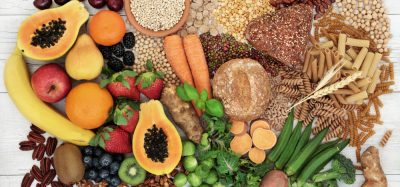FAO announces partnership major French research institutes to work together
- Like
- Digg
- Del
- Tumblr
- VKontakte
- Buffer
- Love This
- Odnoklassniki
- Meneame
- Blogger
- Amazon
- Yahoo Mail
- Gmail
- AOL
- Newsvine
- HackerNews
- Evernote
- MySpace
- Mail.ru
- Viadeo
- Line
- Comments
- Yummly
- SMS
- Viber
- Telegram
- Subscribe
- Skype
- Facebook Messenger
- Kakao
- LiveJournal
- Yammer
- Edgar
- Fintel
- Mix
- Instapaper
- Copy Link
Posted: 16 February 2018 | George Smith (New Food) | No comments yet
The four-year agreement will focus on agroecology, sustainable natural resources management, systems for food security, sanitary risks and antimicrobial resistance (AMR) reduction, particularly in developing countries.


PARTNERSHIP: In particular FAO, Cirad and INRA will increase joint initiatives to promote climate-smart-agriculture and agroecological practices
The Food and Agriculture Organization of the United Nations (FAO) and four major French research and high-level education institutions to increase joint efforts.
The Agriculture Research Centre for International Development (Cirad), the National Institute for Agriculture Research (INRA), the National Research Institute for Sustainable Development (IRD), Agreenium (the French Agricultural, Veterinary and Forestry Institute) and the FAO today agreed to increase joint efforts to develop innovative food security and environment-sensitive approaches that contribute to the achievement of the 2030 Agenda.
According to the FAO, the new partnerships will focus on a number of areas, particularly in developing countries, including agroecology, sustainable natural resources management in the context of climate change; agriculture innovation for family farmers; sustainable and safe food systems for food security (nutrition, waste and loss reduction, market chain governance); sanitary risks, such those related to animal and plant health, One Health and antimicrobial resistance (AMR) reduction.
FAO and the four French institutions will also seek to foster sustainable territorial development. The four-year partnership agreements were signed by FAO Director-General José Graziano da Silva, Michel Eddi on behalf of Cirad, Philippe Mauguin on behalf of INRA, Henri-Luc Thibault on behalf of IRD and Claude Bernhard on behalf of Agreenium.
FAO Director General José Graziano da Silva said: “Through these complementary partnerships and coordinated synergies, jointly we can advance innovation in agriculture and food systems that are safe, sustainable and inclusive, while addressing unprecedented challenges such as climate change and forced migration, and ultimately contributing to the 2030 Agenda.”
Cirad’s Chairperson and Chief Executive Officer Michel Eddi said: ” With this new agreement, today our partnership with FAO is entering a new phase. The Cirad welcomes this strengthened partnership with FAO, and in particular in areas such as agroecology and to support public policies which will allow us to innovate together for tomorrow’s agriculture in line with the 2030 Agenda.”
President Director-general of INRA Philippe Mauguin said:”With this new Memorandum of Understanding, INRA and FAO will mobilise scientists and researchers to address major global challenges related to agriculture, food and environment which are at the core of the 2030 Agenda”
IRD’s Director of European and International relations Henri Luc Thibault said: “Achieving the SDGs and particularly SDGs 2, 13 and 14, on food security, climate change and marine resources will not happen without mobilizing agriculture research for development. There will be no sustainable agricultural or rural development, no sustainable fisheries or aquaculture without adequate investments in research. The combined action of FAO and IRD will therefore enable developing countries to be at the forefront of new technical and societal routes, new production and consumption patterns adapted to the needs of humanity and the capabilities of our planet.”
Agreenium Director Claude Bernhard said: “Agreenium is particularly proud of having such opportunity to contribute to skill members who did not have the possibility to benefit from established educational systems. Concretely, we plan to launch a project on food systems for a better nutrition for MOOC. We aim to build an ecosystem of competencies to support sustainable agriculture and improve food security.”
Related topics
Food Security, Regulation & Legislation, Research & development, Supply chain, Sustainability, The consumer
Related organisations
Agreenium (the French Agricultural, Agriculture Research Centre for International Development (Cirad), Food and Agricultural Organization of the United Nations (FAO), National Institute for Agriculture Research (INRA), National Research Institute for Sustainable Development (IRD), Veterinary and Forestry Institute)
Related people
Claude Bernhard, Henri Luc Thibault, José Graziano da Silva, Michel Eddi, Philippe Mauguin








